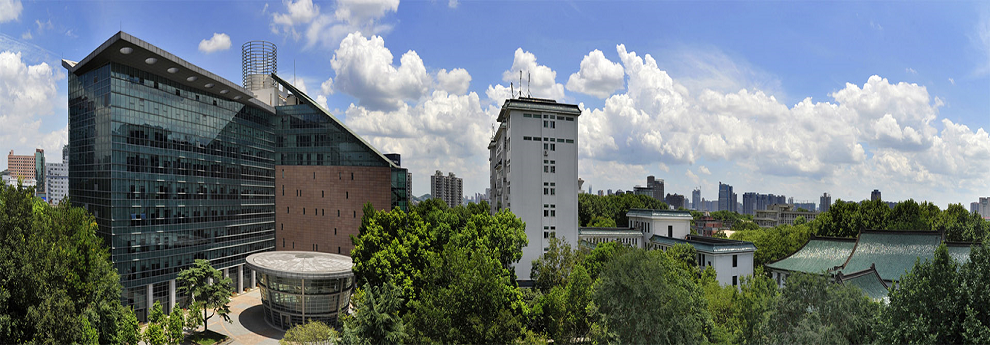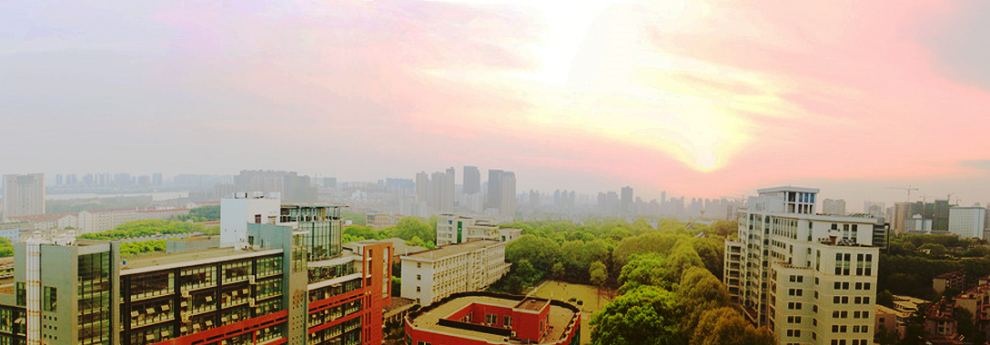PublishDate:November 20, 2011 Author:Geri View:(470)
The discipline of literature and art studies of CCNU has excellent tradition and is home to many scholars who are influential in the field in China. Thanks to efforts of generations, it has now grown into a national key discipline which has well- organized academic team, reasonably- distributed directions, abundant academic and educational achievements and its own doctor station. It can also accept postdoctoral researchers. It now has a faculty of 13 members, including 6 professors, 6 associate professors and lecturers. Ten of them have gotten their PhD degree and 5 are doctoral supervisors.
This discipline began to enroll MA candidates in 1979 and in 1995; it acquired the right to grant PhD degree together with Nanjing University, which later became independent. It is a stationed unit of “National Seminar of Marxist Literary Theory". 4 of the faculty members are vice-chairmen of national institutes. In 1991, the "Literary Criticism Research Center" was established, which has the faculty of this discipline as the main part as well as members from other relative disciplines. It also hires famous scholars home and abroad like Mr. James as its consultancy. On the foundation of it, the “Hubei Research Center for Literary Theory and Criticism” was set up which was approved as the Key Research Base of Humanities and Social Science of Universities and Colleges in Hubei.
It has four research directions: literary criticism, Marxist literary criticism, esthetics of literature and art and Chinese classical literacy theory.
Literary criticism is the major research direction of this discipline. In the 1980s, under the leadership of Prof. Wang Xianpei, it took the lead to open the curriculum of literary criticism. After 30 years’ striving, it is characterized by “one persistence” and “three combinations”, namely, the persistence in studying contemporary literary criticism on the basis of Marist theory and the realization of the three combinations which are the combination of basic theory study and criticism practice, the combination of traditional literary theory and modern and contemporary literary theory and the combination of foreign literary theory and domestic literary theory construction. It has edited and published many series, such as the “literary theory criticism construction series”.
Marxist literary criticism is a special direction of the discipline. As a stationed unit of “National Seminar of Marxist Literary Theory", this direction pays special attention to the combination of research on Marxist literary theory and basic theories. On the basis of intensive study of Marxist literary thought, through the criticizing and absorption of ancient western classical literary theories, western Marxist literary theory and modern literary theories, research on basic literary theories is intensified and explorations are made to find a kind of modern literary theory which can adapt to the new literary and cultural development and finds its foundation in Marxist ideological theory and literary and language theories. Lately, importance is attached to Marxist literary criticism. This direction has become an important research station of it because of its intensified study on Marxist criticism, especially the classical Marxist criticism.
The direction of esthetics of literature and art consists of Marxist practical aesthetics, German classical aesthetics, oriental aesthetics and movies & TV aesthetics. Among them, the practical aesthetics is frontal in China’s aesthetic study and a collection of valuable academic productions are made. It now has its own distinct characteristics and serves as an important body of Chinese practical aesthetics study. The oriental aesthetics focuses on the localization of literature and art aesthetics. The movies & TV aesthetics bears fruits on comedy aesthetics and narration in the fiction film.
Chinese classical literacy theory has its distinctively featured in three aspects. The first one is the study of Chinese literary theory in the context of history and culture. The second one is the discussion on the changing history of Chinese literacy criticism with the social transition as its background. The last one is the research on Chinese ancient poetics and psychology of appreciation, providing native theoretical support for the construction of Marxist literacy criticism with Chinese features.
This discipline values the transformation of academic findings to teaching practice. Outstanding achievements are made on the resolution and construction of its curriculum system. It won first and second prize of Ministry of Education Outstanding Teaching Achievement Award. “Textbook Series of Literature and Art Studies” won first prize of Ministry of Education Excellent Textbook Award. “Courses of Literature and Art studies” were firstly cited as National Excellent Courses in 2003. Its teaching faculty was awarded firstly as "State-level Teaching Group”.
It has seen great success in academic study. During 2001 to 2010, it undertook 53 projects, among which there were 6 National Fund for Social Science Projects and 9 Ministry of Education Fund for Social Science Projects. It won 16 prizes of various kinds. Prof. Wang Xianpei’s work Culture and the Chinese Art Psychology won first prize of Hubei Outstanding Achievement Award for Social Science at its sixth. Prof. Hu Yamin’s paper “Open Nationalism--the Stand of Modern Chinese Literary Criticism” and Prof. Zhang Yunneng’s book New Theories of Practical Aesthetics both won second prizes of Hubei Outstanding Achievement Award for Social Science at its seventh”.
Literature and art studies discipline of CCNU actively strengthens its relationship with the counterparts. It hosted “International Symposium of Mao Zedong literary Thought and 20th Century Chinese Literary Theories and Criticism” (2003), “International Symposium of Literary Criticism and Cultural Criticism” (2005), “‘Three Decades in Study of Literary Theories - From the New Era into the New Century’ International Symposium of the Fourth Representative Conference of China’s Chinese and Foreign Literary Theories Society” (2007) and “‘Marxist Literary Theory and the 21st Century’: the 25th Annual Meeting of National Research Society of Marxist literary Theory” (2008), etc.





